Rebecca Eanes's Blog, page 24
March 7, 2014
What's the Deal with Consequences..When They're Older?

In 2011, I wrote What's the Deal with Consequences where I said, Throw the word "consequence" entirely out of your vocabulary and replace it with the term "problem-solving." That's quite good advice, if I do say so myself. Replacing "consequence" with "problem-solving" helps you see the problem in a new way. Now, rather than coming up with something that will make your child sorry, you're teaching your child how to correct his mistakes and learn from them.
I have 2.5 more years of parenting under my belt now. Parenting years are sort of like dog years. I'm fairly sure I age 7 years per 1 year of parenting, but with it comes a little more wisdom as well. At least, wisdom in my own journey.
What about when you've problem-solved it to death and your child still makes a wrong choice? What about when the natural consequence is too dangerous or your child doesn't give a flip about the natural consequence? What then?
First, I think it's important to define punishment and consequences.
pun·ish·ment noun \ˈpə-nish-mənt\: suffering, pain, or loss that serves as retribution
Punishment is making your child suffer, experience pain, or experience loss in order to serve as retribution. So, obviously spanking (causing pain), grounding (causing suffering or loss), or taking away toys or privileges (causing loss) are all about one thing, you intend to make the child suffer because of her behavior. The thing about punishment is that "serving as retribution" doesn't last. That's why the majority of offenders who get out of jail repeat an offense. Retribution doesn't really teach us anything valuable. In most cases, it serves to just make us angry and vengeful.
con·se·quence noun \ˈkän(t)-sə-ˌkwen(t)s: something that happens as a result of a particular action or set of conditions
That sounds more helpful, except we have an uncanny knack for turning these into punishments, too. This is where the line gets blurry. I fought with myself over the semantics of consequences and punishments for quite a while, and I came to the conclusion that intent is really what separates the two. There are 2 keys in turning from retribution to teaching: INTENT and EMPATHY.
Natural consequences and problem-solving are still the best way to go, even for older children, but, let's be honest, they don't always apply. Sometimes there needs to be an immediate lesson by the parent. If your daughter hits a ball through the neighbor's window, she'll learn a lot more by working for the money to pay for the window than she will by losing her cell phone for a month. Working for the money isn't punishment. You're intent isn't to make her suffer. You're teaching her how to right her wrongs, and that's a really important lesson. However, even though your intent might be good, if there is no empathy, you stand the chance of it backfiring and making her feel negatively towards you and blame you for her feelings and mistakes. That would look like this:
"You idiot! Why didn't you watch what you were doing? You're going to work and pay Mr. Anderson back EVERY PENNY for that window! You can kiss your social life goodbye because you're going to be too busy WORKING!!"
Your intent was good enough, but there was no empathy. You just made her feel like a crummy person and now she's going to internalize that and resent every penny she has to earn. So, in the end, she'll learn that righting her wrongs is associated with negative feelings of worth, and so how often is she going to want to right her wrongs in the future?
How about this?
"Oh my goodness! Mr. Anderson's window is broken. I understand it was an accident. We all make mistakes. What are you going to do about this?"
If she says something like "I'll go apologize" or even "nothing," she'll need more coaching.
"An apology is a good place to start, but the window is your responsibility. It'll need to be paid for."
Now, she's still not likely to be thrilled about doing the work, and that's fine. If you give her empathy all along the way, such as "I'm really sorry that you can't go out with your friends today. You did promise Mr. Anderson you'd weed his garden to help pay for that window. You're doing a really responsible thing, and I'm proud of you," she's much more likely to build on her self worth (she's capable and responsible) and, in the end, feel good that she made it right.
Here's an example straight out of my own home. My son recently poured out an entire new bottle of body wash in the tub and fed the dog an entire huge bag of dog treats all within a 24 hour timespan. Now, had this been the first time or the second time he'd wasted something, we'd have talked about it. But it wasn't the first time or the second time, and he was developing a habit of wasting things, and obviously my chats weren't sticking with him. So, I told him I was sorry he'd made the choice to waste the soap and treats, that he was good kid and I knew he'd just wanted lots of bubbles and to make the dog really happy, but that these things cost money and we weren't made of the stuff, so he'd need to use his allowance money to buy new soap and treats.
He wasn't exactly thrilled about using his allowance money, but that isn't the point. The point is that I affirmed that he had good intentions, but I let him know it was still a poor choice. I didn't yell or shame him. We had this conversation while he was cuddled in my lap. The next time we went to the store, he got out his little wallet and paid for those 2 items - albeit a bit begrudgingly. He hasn't wasted anything since then, and it's been several weeks now.
The natural consequence, of course, would have been that he had nothing to bathe in for a week and, well, eww. That doesn't work for me, and frankly he wouldn't have cared about that anyway. So while natural is great, it isn't always feasible.
What about when your child is verbally or physically aggressive to her sibling? The natural consequence may take years to show up, and the result would be a ruined relationship between the two. You could make her go to her room, but what is she really going to be thinking about in there?
If she's young, you'll problem-solve. How can you handle this better next time? What do you do with anger? Let me show you how to handle anger without hurting your sister.
For an older child whom you've already problem-solved with, given her tools, taught her what to do, and she still chooses to call her sister a "stupid butthead," what is one to do?
What I do is I take the aggressor off with me and we go to the table. I read him our family rules, and I have him write down the rule that pertains to what he did. So if he called his brother a name, he writes the rule about how we treat each other with respect. The writing is to help him memorize the rule better. Then I ask him how he's going to make it up to his brother. It is now his responsibility to repair the relationship. He almost always chooses to make him a drawing of them holding hands. He takes the drawing to his brother and they make up instantly. Children are very forgiving.
You may be thinking that if he "almost always chooses" something, that this must not be solving the problem because it keeps happening. Well, it is happening less and less, and I don't expect perfection. I still do things that cause me to need to repair my relationships! The goal is not to make them perfect, but to make them responsible, and teaching them how to repair rifts in relationships is a life skill that will serve them well. Sitting in a time out chair to think about it doesn't teach them that skill. I asked my kid once, years ago, what he thought about while he was in time-out. He said, "How mad I am at you." Well, that worked well.
Last one. Just the other day, my 5 year old decided not to pick up his toys. Most of the time, he cooperates just fine, but not this particular day. I'd asked him several times while I was running about cleaning and picking up other rooms, and he just kept saying, "You do it." I'd said, "I'm busy with the rest of the house, please pick them up. I need to vacuum that room." I came back in, and he hadn't done it. I picked them all up and I put them in the back of the house where he couldn't get to them. "Since you chose not to pick up your toys after I'd asked you nicely several times, I did pick them up for you, but now they're put away for the rest of the day." That sure looks like an good old-fashioned punishment, but what was my intent and did I deliver with empathy? He didn't pick up the toys, so he lost them - that's a logical consequence to not picking them up. A natural consequence would be that the playroom was a wreck and wouldn't get vacuumed, but that doesn't work for me. He wouldn't care if it didn't get vacuumed anyway, so the natural consequence in that case wasn't helpful.
We all have to figure out what works best for our children in the time and space that we're in. We grow as we learn, and we learn as we go. Always keep your relationship #1, and as Og Mandino said, "Do all things with love."
That's what really matters.
Published on March 07, 2014 08:46
March 6, 2014
Get Away from Fear-Based Parenting in Three Easy Steps Sarah MacLaughlin
Get Away from Fear-Based Parenting in Three Easy Steps Sarah MacLaughlin, LSW
It's hard to avoid fear in parenting. A lot of the fear we feel as parents falls into the worry category, though some is gut panic. Then there is the fear we use as parents - is that ever useful? Let's take a look at both kinds. We get scared for any number of reasons. A couple of examples: our two-year-old runs into the street or our four-year-old throws a tantrum of shocking vileness and force. When either of these things happens we get scared and this means we are no longer thinking well. Also, we are no longer in present time.
Step one is to recognize this. When your amygdala hijacks your prefrontal cortex and floods your body with adrenaline and cortisol, you are no longer a rational human. You are in fight or flight mode. I'm guessing we agree that that's not the best place to parent from. Remember that your brain has been taken over, your thinking mind is diminished, and your perception of the situation likely skewed.
Step two is to BREATHE. When you breathe, you reconnect to yourself and your body in the present time. When you snatch your child from a busy street, you are still imagining them injured or dead, even though that didn't happen. You have projected yourself into an imaginary future. Sure, that tantrum was awful, but your preschooler did not mean those awful things he said, and will not end up in therapy or prison. I promise. These are tricks a fearful mind plays - an old response to a new situation. In our modern day world, safety is usually restored very quickly. There is no actual need to fight or run, despite what your body is telling you. Breathing will slow things way down and help remind you of this: You are safe.
Step three is to not perpetuate the fear. Here's where we start to use fear as parents. We swat the child who darted into the road, hoping that pain will scare her into never doing it again. We yell at the four year-old to pull it together, or we separate him in a time-out until he can behave better. Both yelling and time-out are fear-based punishments; the former creates fear of a parent's anger and the latter brings fear of the withdrawal of a parent's attention, closeness, and love. (Ironically, a child who has lost control of their emotions and behavior will regulate much more quickly and efficiently with a calm adult near them, rather than being sent away and isolated.) Punishments of any kind are fear based, and often consequences are just thinly veiled punishments. Don't we want children to be intrinsically motivated to behave well, to have understanding of why they are being guided to behave in certain ways and not in others? Children who are motivated by fear learn to be sneaky to avoid punishment. When we use fear, the ultimate goal of discipline, which is to teach, is completely lost. This reminds me of a classic Albert Einstein quote, one that epitomizes my quest to elevate parenting beyond a fear-based model: "If people are good only because they fear punishment, and hope for reward, then we are a sorry lot indeed."
***********************************************************

Sarah is featured in the Essential Parenting Collection! This digital bundle offers a very wide array of eProducts, including eBooks, audiobooks, eCourses, workbooks, audio, coloring pages. This page provides you with detailed information on each product. The Essential Parenting Collection is offered at $49.97, fractions of the retail value of 741.21. Buy the whole collection here.
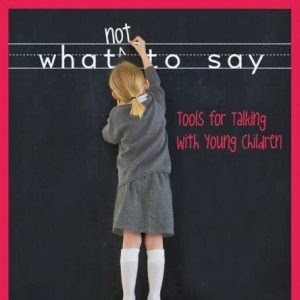 Sarah's book, What Not to Say: Tools for Talking with Young Children is part of the Parenting the Early Years mini bundle which you can purchase separately here.
Sarah's book, What Not to Say: Tools for Talking with Young Children is part of the Parenting the Early Years mini bundle which you can purchase separately here.
It's hard to avoid fear in parenting. A lot of the fear we feel as parents falls into the worry category, though some is gut panic. Then there is the fear we use as parents - is that ever useful? Let's take a look at both kinds. We get scared for any number of reasons. A couple of examples: our two-year-old runs into the street or our four-year-old throws a tantrum of shocking vileness and force. When either of these things happens we get scared and this means we are no longer thinking well. Also, we are no longer in present time.
Step one is to recognize this. When your amygdala hijacks your prefrontal cortex and floods your body with adrenaline and cortisol, you are no longer a rational human. You are in fight or flight mode. I'm guessing we agree that that's not the best place to parent from. Remember that your brain has been taken over, your thinking mind is diminished, and your perception of the situation likely skewed.
Step two is to BREATHE. When you breathe, you reconnect to yourself and your body in the present time. When you snatch your child from a busy street, you are still imagining them injured or dead, even though that didn't happen. You have projected yourself into an imaginary future. Sure, that tantrum was awful, but your preschooler did not mean those awful things he said, and will not end up in therapy or prison. I promise. These are tricks a fearful mind plays - an old response to a new situation. In our modern day world, safety is usually restored very quickly. There is no actual need to fight or run, despite what your body is telling you. Breathing will slow things way down and help remind you of this: You are safe.
Step three is to not perpetuate the fear. Here's where we start to use fear as parents. We swat the child who darted into the road, hoping that pain will scare her into never doing it again. We yell at the four year-old to pull it together, or we separate him in a time-out until he can behave better. Both yelling and time-out are fear-based punishments; the former creates fear of a parent's anger and the latter brings fear of the withdrawal of a parent's attention, closeness, and love. (Ironically, a child who has lost control of their emotions and behavior will regulate much more quickly and efficiently with a calm adult near them, rather than being sent away and isolated.) Punishments of any kind are fear based, and often consequences are just thinly veiled punishments. Don't we want children to be intrinsically motivated to behave well, to have understanding of why they are being guided to behave in certain ways and not in others? Children who are motivated by fear learn to be sneaky to avoid punishment. When we use fear, the ultimate goal of discipline, which is to teach, is completely lost. This reminds me of a classic Albert Einstein quote, one that epitomizes my quest to elevate parenting beyond a fear-based model: "If people are good only because they fear punishment, and hope for reward, then we are a sorry lot indeed."
***********************************************************

Sarah is featured in the Essential Parenting Collection! This digital bundle offers a very wide array of eProducts, including eBooks, audiobooks, eCourses, workbooks, audio, coloring pages. This page provides you with detailed information on each product. The Essential Parenting Collection is offered at $49.97, fractions of the retail value of 741.21. Buy the whole collection here.
 Sarah's book, What Not to Say: Tools for Talking with Young Children is part of the Parenting the Early Years mini bundle which you can purchase separately here.
Sarah's book, What Not to Say: Tools for Talking with Young Children is part of the Parenting the Early Years mini bundle which you can purchase separately here.
Published on March 06, 2014 11:10
February 27, 2014
Adult Entitlement
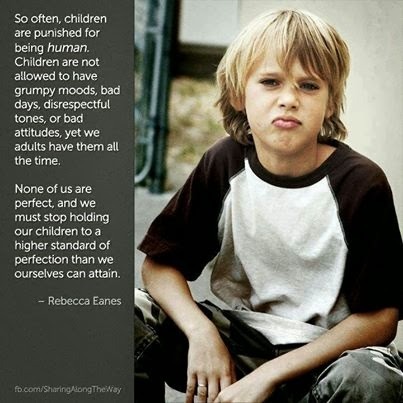
This meme was made by the Facebook page Sharing Along the Way, using a quote from my book The Newbie's Guide to Positive Parenting. It has been shared thousands of times across Facebook, and while most people agree, there are also many who misunderstand this quote. Misunderstandings are common when we take a part of a book without seeing the surrounding context.
Most often, the misunderstanding is that we don't teach them any better. This is a common misconception of positive parenting. Authoritarians assume that we don't discipline at all just because we aren't spanking or sending our children out of our presence when they aren't living up to our ridiculously high expectations, but true discipline doesn't come through threats and punishments. True discipline is what we teach our children day in and day out in all the million little interactions we have with them. As we model appropriate behavior and teach them diligently day after day how to handle their emotions with techniques such as deep breathing, journaling, or walking away to cool down, as we teach them how to manage themselves within the boundaries of the family, giving them tools they can use instead of consequences they can't, and lovingly, gently correcting, guiding, teaching, coaching, mentoring, we are disciplining - making disciples of - our children, and it takes so much more effort than a quick spanking or a few minutes in a time out chair. Authoritarians think it is absurd to raise children without punishment, but I think it is absurd to expect children to learn how truly manage themselves by taking something away from them.
But the misunderstandings I most often see point to a larger problem of adult entitlement, and this directly points back to the reason I've chosen a different parenting path.
What happens is, as children, we are told what to do, what to say, how to look, what to like. We raise our hands to go to the bathroom, we get bullied for not fitting in just right, we sit through hours of school and come home to hours of homework. Our feelings are dismissed as ridiculous or annoying. Big kids don't cry! Suck it up! You're being silly! We are criticized on everything from our size to our hairstyles, our grades to our ambitions. Someone is always exerting their power over us until that one day, that one special day when we pass through the magical portal into adulthood. Poof! We go from being the lesser of society to being the top of the chain! Suddenly, overnight, you can no longer hit us without an assault charge. You can no longer criticize us because we adults are covered by the DON'T JUDGE ME ACT that apparently got passed somewhere in recent history. You can't criticize our mistakes any longer! You can't expect US to not grump at our spouse or yell at our kids. We are stressed and worn out and busy, for goodness' sake! And we can't be judged!
Ah, the entitlement of adulthood. The best bit is when we have our own kids, though. Now WE have the power to wield however we'd like. Now we can complain about today's kids because we were complained about, and that evens the score. Now we can dish out punishments if our children don't meet our expectations because it feels good to be on the other side, to be the one with the power! If I don't like your attitude, I can banish you from my sight! I can demand respect for the simple fact that I have passed the magical age of 18 and am now entitled to it, and if you don't show it to me, you can face the consequences! Intoxicating!
The thing is that these entitled adults drop by random parenting pages to tell us how fine they are, how well they've turned out, and in the same breath cuss other people or call them names. They tell us how they learned respect when THEY were kids, and then disrespect people on the threads they're posting in. Go ahead and take a leisurely scroll through a few parenting pages on Facebook and tell me how well behaved and respectful today's adults are.
That's exactly what happens when the threat of consequences are removed. Sure, we have to obey laws, like not stealing or killing anybody, but I have to tell you it's a whole lot easier to stay out of jail than it is to stay out of the corner. Our attitudes though? There's no one to correct us when we get rude and disrespectful, and it's especially prevalent on the internet where, as Sally Clarkson says, there are no tear-filled eyes staring back at us. There's no one to stop us from being disrespectful to our kids. In fact, it's almost expected. We can yell at them every day, what are you going to do? We can grump at our spouses and disrespect the store clerk because you can't spank us or put us in time out. No sir! Don't judge me.
Here is a comment left on this meme recently: "Yes I do hold my child to a higher standard than myself I am suppose to. If u continue in the same cycle what have u changed. My child is my child not me. What I achieve is not her best its mines she must be better because its in her. Just like my mother change my behavior I must do the same with my child. Each generation must improve that way the world improves."
I'm sorry, but this is a cop out, plain and simple. It's time adults held ourselves to a higher standard. We need to learn how to control our emotions, handle our frustrations, and speak respectfully to the little ones in our care and even to the people we can't see. We need to stop hitting our kids, stop yelling at them and our spouses, and learn to effectively communicate with the people we love. We need to stand up and be the change. If we can't live up to our own standards, why should we expect our children to?
The quote in the meme doesn't mean don't teach your children better. Please do. It means rise up and give them something to aspire to. That's the only way things will really improve. It starts with me. It starts with you.
*Oh, and I need to mention grace.*
Here's a quote posted on Ann Voskamp's Facebook page.

While we should absolutely teach our children how to handle their emotions, not project their bad moods, and how to be respectful, there are times when, like us, all they need is grace. Grace isn't an excuse to continue bad behavior, but it's a loving embrace of understanding and acceptance of the soul you're nurturing. Sometimes life is hard. Sometimes we mess up. Sometimes they mess up. Sometimes we can skip the lecture and just offer grace. If God doesn't expect me to be perfect, I surely don't expect my children to be.
Published on February 27, 2014 08:23
February 26, 2014
The Three Most Important Parts of Parenting By Sarah MacLaughlin
The Three Most Important Parts of Parenting By Sarah MacLaughlin, LSW, Parenting Coach for Moms and Dads
Let me start by saying that every parent knows their own children best. YOU are the expert on your own child. I aim to not so much give advice, as ask the right questions and offer guidance along the roads that parents travel. So the guidance I will offer is guideposts, actually. Here are three of what I consider to be the most important aspects of good parenting: Respect, relationship, and repair.
First and foremost: respect. This makes sense; we want and need our children to respect us, right? Right. I think the tricky piece here is staying mindful that respect must be a two-way street. This also makes sense; intellectually anyway. Practically speaking, it isn't always easy to respect a small child who needs your near constant supervision and care. It's even harder to hold in high esteem a small person who may not be behaving rationally, managing their emotions, or have all their teeth yet. Let's face it, our culture is not one in which the weak, emotionally volatile, and unreasonable command respect. Along these same lines, we mainly parent within a paradigm where kids are the sponges and we are our child's first teacher. But this is only one side of a much more complex story. As adults we may have more information, knowledge, and common sense than a child. But we forget our duality, and easily dismiss children's inherent gifts of connectedness, creativity, humor, and emotional honesty.
Next: relationship. This is what parenting is all about! Ah, but we are so easily side-tracked into control and behavior management. Rebecca Thompson, executive director of The Consciously Parenting Project, notes that behavioral approaches (consequences, etc.) all stem from the research of B.F. Skinner - you may recall that he worked with laboratory animals? Animals are not people, and although many have proposed that training� techniques do work to change conduct in children, often this is not the case, and the result ends up being even more escalated behavior. Ms. Thompson suggests addressing the underlying emotion first, before discussing behavior, or what might be done differently next time. Keep in mind that it's hard to receive feedback on your actions while you are having strong feelings (and brain research confirms this), no matter what your age!
And finally: repair. I'll be honest; sometimes I just don't get it right. We are all human and prone to messing up. Part of repair is being accountable for our actions. Apologize if you've made a mistake. This is a skill all people need; modeling it for your child is incredibly valuable. When we approach a problem, error, or offense of ours or theirs with true curiosity about what can be done to amend, fix, repair, or make restitution, we are on track for learning, making things right, and better behavior in the future. Punishment, criticism, and negative consequences all use fear as a motivator. Ultimately, I'd rather maintain love, not fear, in my connection with my child; repair helps with this.
So keep doing what you're doing! Love your kids, treat them with respect, and remember that your relationship will long outlast the phase where you are parenting� them. Hopefully you will have a much longer adult-adult relationship with them than you will have adult-child. Model self-control, kindness, humility, and other qualities you WANT to see in your child. The good news and the bad news is that your children are usually paying very close attention to your behavior. Try to make sure it's desirable.
**************************************************************

Sarah is featured in the Essential Parenting Collection! This digital bundle offers a very wide array of eProducts, including eBooks, audiobooks, eCourses, workbooks, audio, coloring pages. This page provides you with detailed information on each product. The Essential Parenting Collection is offered at $49.97, fractions of the retail value of 741.21. Buy the whole collection here.
 Sarah's book, What Not to Say: Tools for Talking with Young Children is part of the Parenting the Early Years mini bundle which you can purchase separately here.
Sarah's book, What Not to Say: Tools for Talking with Young Children is part of the Parenting the Early Years mini bundle which you can purchase separately here.
*This post contains affiliate links.
Let me start by saying that every parent knows their own children best. YOU are the expert on your own child. I aim to not so much give advice, as ask the right questions and offer guidance along the roads that parents travel. So the guidance I will offer is guideposts, actually. Here are three of what I consider to be the most important aspects of good parenting: Respect, relationship, and repair.
First and foremost: respect. This makes sense; we want and need our children to respect us, right? Right. I think the tricky piece here is staying mindful that respect must be a two-way street. This also makes sense; intellectually anyway. Practically speaking, it isn't always easy to respect a small child who needs your near constant supervision and care. It's even harder to hold in high esteem a small person who may not be behaving rationally, managing their emotions, or have all their teeth yet. Let's face it, our culture is not one in which the weak, emotionally volatile, and unreasonable command respect. Along these same lines, we mainly parent within a paradigm where kids are the sponges and we are our child's first teacher. But this is only one side of a much more complex story. As adults we may have more information, knowledge, and common sense than a child. But we forget our duality, and easily dismiss children's inherent gifts of connectedness, creativity, humor, and emotional honesty.
Next: relationship. This is what parenting is all about! Ah, but we are so easily side-tracked into control and behavior management. Rebecca Thompson, executive director of The Consciously Parenting Project, notes that behavioral approaches (consequences, etc.) all stem from the research of B.F. Skinner - you may recall that he worked with laboratory animals? Animals are not people, and although many have proposed that training� techniques do work to change conduct in children, often this is not the case, and the result ends up being even more escalated behavior. Ms. Thompson suggests addressing the underlying emotion first, before discussing behavior, or what might be done differently next time. Keep in mind that it's hard to receive feedback on your actions while you are having strong feelings (and brain research confirms this), no matter what your age!
And finally: repair. I'll be honest; sometimes I just don't get it right. We are all human and prone to messing up. Part of repair is being accountable for our actions. Apologize if you've made a mistake. This is a skill all people need; modeling it for your child is incredibly valuable. When we approach a problem, error, or offense of ours or theirs with true curiosity about what can be done to amend, fix, repair, or make restitution, we are on track for learning, making things right, and better behavior in the future. Punishment, criticism, and negative consequences all use fear as a motivator. Ultimately, I'd rather maintain love, not fear, in my connection with my child; repair helps with this.
So keep doing what you're doing! Love your kids, treat them with respect, and remember that your relationship will long outlast the phase where you are parenting� them. Hopefully you will have a much longer adult-adult relationship with them than you will have adult-child. Model self-control, kindness, humility, and other qualities you WANT to see in your child. The good news and the bad news is that your children are usually paying very close attention to your behavior. Try to make sure it's desirable.
**************************************************************

Sarah is featured in the Essential Parenting Collection! This digital bundle offers a very wide array of eProducts, including eBooks, audiobooks, eCourses, workbooks, audio, coloring pages. This page provides you with detailed information on each product. The Essential Parenting Collection is offered at $49.97, fractions of the retail value of 741.21. Buy the whole collection here.
 Sarah's book, What Not to Say: Tools for Talking with Young Children is part of the Parenting the Early Years mini bundle which you can purchase separately here.
Sarah's book, What Not to Say: Tools for Talking with Young Children is part of the Parenting the Early Years mini bundle which you can purchase separately here.*This post contains affiliate links.
Published on February 26, 2014 06:00
February 22, 2014
Spotlight: What Not to Say: Tools for Talking with Young Children
Welcome to the
Essential Parenting Collection
, brought to you by my affiliate partner Mindful Nurturing. Today, I'm highlighting What Not to Say: Tools for Talking with Young Children, part of the module on
Parenting the Early Years
, one of the mini bundles included in the collection.
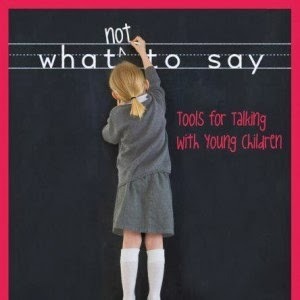
Reduce stress. Enjoy your kids more!
How many times have you uttered a standard, knee-jerk phrase when trying to counsel a young child or respond to irritating behavior? Even when it's clear our typical verbal reactions and directives aren't working, many adults just don't know what to say instead. Changing the way we talk may be a daunting prospect, but What Not to Say: Tools for Talking with Young Children succeeds in steering parents, teachers, nannies, and others in how to revamp their communication with 1- to 6-year-olds. By understanding the importance of what children hear from us and utilizing the book's practical tools, readers can begin to think twice and alter how they typically speak to the children in their lives. Confrontations and misunderstanding can be turned around with clarity, honesty, consistency, and humor.
Sarah MacLaughlin addresses the need for a succinct guidebook, one that is short on theory and long on practical help for busy, often overworked caregivers. Utilizing 66 common expressions--those things we have often heard and sometimes say ourselves--she explains why many everyday interactions with children can be ineffective, if not downright damaging. Offering empathy rather than guilt, MacLaughlin reveals how our words sound to a child and gives examples for replacing ineffective sayings with more positive and productive language for various situations.


About the authorSarah MacLaughlin brings over 20 years of experience to her work with families. She is a licensed social worker and esteemed parenting coach. Sarah is also mom to a Kindergartner, and author of the award-winning book, What Not to Say: Tools for Talking with Young Children. She is passionate about advocating for kids and inspiring the adults who care for them to do the best job possible.
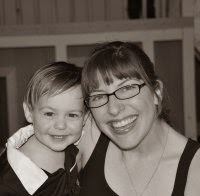
*** This product is included in the Essential Parenting Collection. The Essential Parenting Collection is 35 hand-selected parenting eProducts by world-renowned authors for only $49.97, brought to you by my affiliate partner Mindful Nurturing. Get your collection today and dig into these life-changing resources:
Hold on to Your Kids: Why Parents Need to Matter More than Peers, by Gordon Neufeld and Gabor Mate (eAudiobook)The Business of Baby: What Doctors Don't Tell You, What Corporations Try To Sell You, And How to Put Your Pregnancy, Childbirth, and Baby Before Their Bottom Line, by Jennifer Margulis (eAudiobook)What Not to Say - Tools for Talking with Young Children, by Sarah MacLaughlin (eBook)one year subscription to JUNO Magazine (eMagazine)Liberation Parenting Program, by Teresa Graham Brett (eWorkbook and eAudio)Many more!

Reduce stress. Enjoy your kids more!
How many times have you uttered a standard, knee-jerk phrase when trying to counsel a young child or respond to irritating behavior? Even when it's clear our typical verbal reactions and directives aren't working, many adults just don't know what to say instead. Changing the way we talk may be a daunting prospect, but What Not to Say: Tools for Talking with Young Children succeeds in steering parents, teachers, nannies, and others in how to revamp their communication with 1- to 6-year-olds. By understanding the importance of what children hear from us and utilizing the book's practical tools, readers can begin to think twice and alter how they typically speak to the children in their lives. Confrontations and misunderstanding can be turned around with clarity, honesty, consistency, and humor.
Sarah MacLaughlin addresses the need for a succinct guidebook, one that is short on theory and long on practical help for busy, often overworked caregivers. Utilizing 66 common expressions--those things we have often heard and sometimes say ourselves--she explains why many everyday interactions with children can be ineffective, if not downright damaging. Offering empathy rather than guilt, MacLaughlin reveals how our words sound to a child and gives examples for replacing ineffective sayings with more positive and productive language for various situations.


About the authorSarah MacLaughlin brings over 20 years of experience to her work with families. She is a licensed social worker and esteemed parenting coach. Sarah is also mom to a Kindergartner, and author of the award-winning book, What Not to Say: Tools for Talking with Young Children. She is passionate about advocating for kids and inspiring the adults who care for them to do the best job possible.

*** This product is included in the Essential Parenting Collection. The Essential Parenting Collection is 35 hand-selected parenting eProducts by world-renowned authors for only $49.97, brought to you by my affiliate partner Mindful Nurturing. Get your collection today and dig into these life-changing resources:
Hold on to Your Kids: Why Parents Need to Matter More than Peers, by Gordon Neufeld and Gabor Mate (eAudiobook)The Business of Baby: What Doctors Don't Tell You, What Corporations Try To Sell You, And How to Put Your Pregnancy, Childbirth, and Baby Before Their Bottom Line, by Jennifer Margulis (eAudiobook)What Not to Say - Tools for Talking with Young Children, by Sarah MacLaughlin (eBook)one year subscription to JUNO Magazine (eMagazine)Liberation Parenting Program, by Teresa Graham Brett (eWorkbook and eAudio)Many more!
Published on February 22, 2014 06:00
February 20, 2014
Oxytocin and Emotion - What is Oxytocin? Pt 2 by Bryan Post
Oxytocin and Emotion—What Is Oxytocin? Part 2by Bryan Post

A healthy brain releases oxytocin in response to positive social cues. For example, when a mother cuddles her child, both of their brains should release oxytocin. The oxytocin travels into their bloodstreams, where it relaxes them and encourages cellular repair. It also enters the parts of their brain that process social information, making them feel secure and loving.
Humans are hard-wired to not only enjoy but to need to be close to other humans. Scientists think this is because, in the brains of highly social mammals – including monkeys, wolves, many birds and humans — the social centers are highly sensitive to both oxytocin and dopamine, the chemical of reward-seeking and pleasure. This combination makes socializing very pleasurable and calming. When we’re close to people we trust, the interaction of oxytocin and dopamine leads to us feeling happy and secure. But there is one very big IF in all this. When we say that humans are hard-wired to connect, we mean that our brains have this potential. But the desire for social interaction and the brain’s ability to release oxytocin are not automatic. This is a learned response, and it can fail to develop or its development can be thwarted.
For an excellent parenting resource for learning how Oxytocin works in the family, read about Oxytocin Parenting by Bryan Post and Susan Kutchinskas.
This parenting resource is available in the Essential Parenting Collection which you can buy in it's entirety or this title is included in the Parenting in the Early Years mini bundle which you can purchase separately if you choose.

*This post contains affiliate links.

A healthy brain releases oxytocin in response to positive social cues. For example, when a mother cuddles her child, both of their brains should release oxytocin. The oxytocin travels into their bloodstreams, where it relaxes them and encourages cellular repair. It also enters the parts of their brain that process social information, making them feel secure and loving.
Humans are hard-wired to not only enjoy but to need to be close to other humans. Scientists think this is because, in the brains of highly social mammals – including monkeys, wolves, many birds and humans — the social centers are highly sensitive to both oxytocin and dopamine, the chemical of reward-seeking and pleasure. This combination makes socializing very pleasurable and calming. When we’re close to people we trust, the interaction of oxytocin and dopamine leads to us feeling happy and secure. But there is one very big IF in all this. When we say that humans are hard-wired to connect, we mean that our brains have this potential. But the desire for social interaction and the brain’s ability to release oxytocin are not automatic. This is a learned response, and it can fail to develop or its development can be thwarted.
For an excellent parenting resource for learning how Oxytocin works in the family, read about Oxytocin Parenting by Bryan Post and Susan Kutchinskas.
This parenting resource is available in the Essential Parenting Collection which you can buy in it's entirety or this title is included in the Parenting in the Early Years mini bundle which you can purchase separately if you choose.

*This post contains affiliate links.
Published on February 20, 2014 17:09
February 18, 2014
Hands Free Mama Book Review
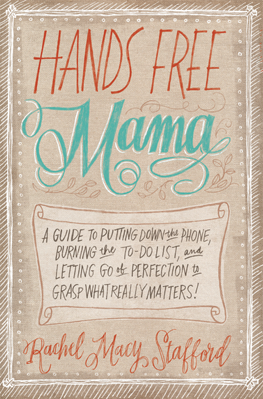
Rarely are books life-changing for me. Helpful? Yes. Enlightening? Sure. But a book that actually changes the course of my life? RARE. In fact, I can think of only one other book that has had such an impact on me.
This book is one of those life-changing books.
I knew I had trouble with distraction. I knew I was on my phone a little too much, spent a bit too much time on the computer, and my kids had called me out more than once on getting off my phone to play. "Just a minute. I want to read this" I'd utter, not even looking up to see the disappointment on their faces.
You see, I thought I was doing important work. I convinced myself that, because I homeschool them and basically spend 24/7 with them, that I was entitled to get an hour on the computer. After all, I had a page to run, a blog to check, books to promote, affiliates to contact, and a new yell-free year group that I promised to help. It was my work, and it was important, I told myself.
The thing is, one hour turned into much more than one hour, and I found that too many days, after they'd fallen asleep, I was left with a heavy heart of guilt because once again, I hadn't made time to play. I was around them all day, but I wasn't present.
I have big dreams. I want to make a difference - a positive impact on the lives of children and families everywhere. It's a fantastic notion, but I often have my eyes so focused on what I can do out there that I don't see what's right in front of me.
Rachel's book helped me see that hours together didn't equate to memories together, and what I want more than anything is a life of happy memories for my children and for myself. From the very first chapter, my eyes welled up with tears as Rachel's words spoke to my very soul. Her stories were often heartwarming, sometimes heartbreaking, but always inspirational, nudging my heart, strengthening my resolve to live a life less distracted so I can grasp what truly matters.
When I finished Hands Free Mama, when I closed the book, my eyes filled with tears, the first thing I did was hit my knees and pray for the wisdom, courage, and strength to put down my devices and focus on the little ones God has entrusted to me.
If I could get one book into the hands of every mother, this would be that book. If you don't read anything else this year, I encourage you to read this.
My conviction is clear. I desire a Hands Free life, and my kids deserve a Hands Free mama, too. So, you'll see me around, like now, when they're fast asleep on either side of me as I type. These sleeping faces look so much more mature than they did a year ago. Their tiny hands aren't so tiny anymore. I don't want to miss this. If I do, then I have missed everything. Tomorrow, I'm going to turn off my phone, power down my computer, and I'm going to play. I'm going to make precious memories with them while there is still time. Everything else can wait.
Grab the book and join me on this Hands Free journey!
***********************************************************************
You can find Rachel on her blog, Hands Free Mama and her Facebook page The Hands Free Revolution.
Published on February 18, 2014 08:35
February 17, 2014
Oxytocin and Emotion - Pt. 1: What is Oxytocin by Bryan Post
Oxytocin and Emotion— Pt 1: What Is Oxytocin?by Bryan Post
 To understand love is to understand the oxytocin response. Oxytocin is truly a miracle molecule. As the body’s chemical of rest, relaxation and balance, it does all sorts of wonderful and important things. We’ll talk more about those later’ but the key thing you need to understand for healthy, happy parenting is that oxytocin is responsible for love.
To understand love is to understand the oxytocin response. Oxytocin is truly a miracle molecule. As the body’s chemical of rest, relaxation and balance, it does all sorts of wonderful and important things. We’ll talk more about those later’ but the key thing you need to understand for healthy, happy parenting is that oxytocin is responsible for love.
That’s right. Oxytocin acting in your brain and your body creates the experience we know as love. That’s love in all its dimensions: friendship, the love between parent and child, and the love between you and your mate. It’s also responsible for most of the other positive feelings we have for other people, from the quick exchange of smiles with a stranger you pass, to admiration for a co-worker, to the way you trust your car mechanic not to rip you off.
Oxytocin does all this — and more — in two ways. First, it calms the brain’s fear center. Then, it activates the brain’s social center, making you feel good about interacting with someone. Calming the fear center is crucial. Fear is one of our strongest survival mechanisms, helping us survive physical danger. But it’s usually not the best reaction to social situations. When you’re anxious or afraid, you can’t see things clearly. You may see someone as threatening when he has no intention of harming you. You’re on guard and shut down, as fear chemicals race through your bloodstream.
Oxytocin counteracts the fear chemicals, relaxing you and making you able to see other people as potentially friendly and trustworthy. At the same time, when it activates the brain’s social center, it actually makes you desire social contact.
For an excellent parenting resource for learning how Oxytocin works in the family, read about Oxytocin Parenting by Bryan Post and Susan Kutchinskas.
This parenting resource is available in the Essential Parenting Collection which you can buy in it's entirety or this title is included in the Parenting in the Early Years mini bundle which you can purchase separately if you choose.

*This post contains affiliate links.
 To understand love is to understand the oxytocin response. Oxytocin is truly a miracle molecule. As the body’s chemical of rest, relaxation and balance, it does all sorts of wonderful and important things. We’ll talk more about those later’ but the key thing you need to understand for healthy, happy parenting is that oxytocin is responsible for love.
To understand love is to understand the oxytocin response. Oxytocin is truly a miracle molecule. As the body’s chemical of rest, relaxation and balance, it does all sorts of wonderful and important things. We’ll talk more about those later’ but the key thing you need to understand for healthy, happy parenting is that oxytocin is responsible for love.That’s right. Oxytocin acting in your brain and your body creates the experience we know as love. That’s love in all its dimensions: friendship, the love between parent and child, and the love between you and your mate. It’s also responsible for most of the other positive feelings we have for other people, from the quick exchange of smiles with a stranger you pass, to admiration for a co-worker, to the way you trust your car mechanic not to rip you off.
Oxytocin does all this — and more — in two ways. First, it calms the brain’s fear center. Then, it activates the brain’s social center, making you feel good about interacting with someone. Calming the fear center is crucial. Fear is one of our strongest survival mechanisms, helping us survive physical danger. But it’s usually not the best reaction to social situations. When you’re anxious or afraid, you can’t see things clearly. You may see someone as threatening when he has no intention of harming you. You’re on guard and shut down, as fear chemicals race through your bloodstream.
Oxytocin counteracts the fear chemicals, relaxing you and making you able to see other people as potentially friendly and trustworthy. At the same time, when it activates the brain’s social center, it actually makes you desire social contact.
For an excellent parenting resource for learning how Oxytocin works in the family, read about Oxytocin Parenting by Bryan Post and Susan Kutchinskas.
This parenting resource is available in the Essential Parenting Collection which you can buy in it's entirety or this title is included in the Parenting in the Early Years mini bundle which you can purchase separately if you choose.

*This post contains affiliate links.
Published on February 17, 2014 05:00
February 16, 2014
Spotlight: Liberation Parenting Program

The Liberation Parenting Program is 131 pages plus 2+ hours of audio. The retail value is $47, and this is included in the Essential Parenting Collection. It is part of the Resources for Parents mini bundle.
The Liberation Parenting Program is a multimedia e-course that helps parents to do the inner work needed to move through blocks that keep them from sustaining relationships with children that are grounded in trust, respect, and freedom. Using tools for transformative learning, parents will experience greater wholeness and connection for themselves and support the children in their lives to do the same.
Liberation Parenting Program: Creating a foundation for just and empowering relationships with children through wholeness, authenticity and integrity.
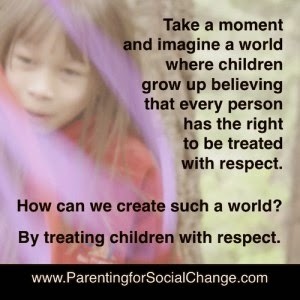
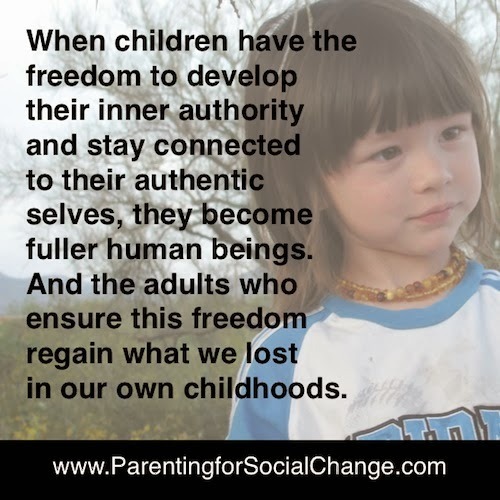
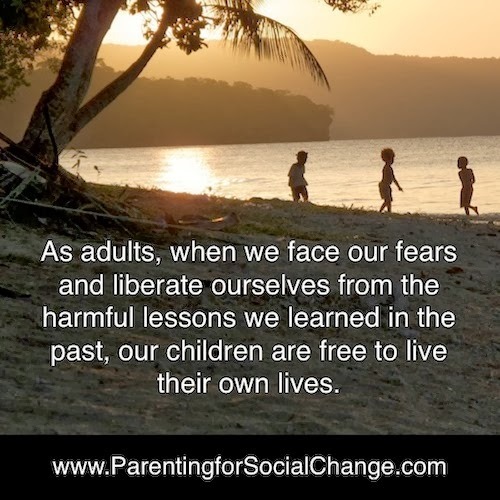
 About the authorTeresa Graham Brett lives her passion for creating social change by combining her work in social justice education with parenting. The children in her life have challenged her to live according to the values of liberation, freedom and respect as a parent and human being. As a writer and consultant she works with other parents to do inner work as a foundation for outer action that ultimately liberates individuals, groups and communities. As individuals and a society we can create a base of love, wholeness, authenticity, and integrity that is the foundation for just and empowering relationships.
About the authorTeresa Graham Brett lives her passion for creating social change by combining her work in social justice education with parenting. The children in her life have challenged her to live according to the values of liberation, freedom and respect as a parent and human being. As a writer and consultant she works with other parents to do inner work as a foundation for outer action that ultimately liberates individuals, groups and communities. As individuals and a society we can create a base of love, wholeness, authenticity, and integrity that is the foundation for just and empowering relationships.Visit her website.

*** The Essential Parenting Collection is 35 hand-selected parenting eProducts by world-renowned authors for only $49.97, brought to you by my affiliate partner Mindful Nurturing. Get your collection today and dig into these life-changing resources:
Hold on to Your Kids: Why Parents Need to Matter More than Peers, by Gordon Neufeld and Gabor Mate (eAudiobook)The Business of Baby: What Doctors Don't Tell You, What Corporations Try To Sell You, And How to Put Your Pregnancy, Childbirth, and Baby Before Their Bottom Line, by Jennifer Margulis (eAudiobook)What Not to Say - Tools for Talking with Young Children, by Sarah MacLaughlin (eBook)one year subscription to JUNO Magazine (eMagazine)Liberation Parenting Program, by Teresa Graham Brett (eWorkbook and eAudio)Many more!
Published on February 16, 2014 10:08
February 14, 2014
Two Messages Your Child Must Hear By Sarah MacLaughlin
Two Messages Your Child Must Hear By Sarah MacLaughlin, LSW, Parenting Educator and Coach
All parents want to do a good job and we all could use support in it! The truth is that every parent is doing the best job they can with the resources they have access to. Just like your parents and their parents did.
Parenting is hard, joyful, frustrating, rewarding work. My passion lies in helping moms and dads fulfill their desire to be their best, connected, loving selves in parenthood. As a social worker, I hear a lot of talk about resiliency. Underprivileged youth, in spite of the hardships they have endured, can have positive outcomes.
Research shows that their resiliency and view of themselves is dramatically improved if they receive two consistent messages from a trusted adult. It doesn't matter who the adult is a coach, teacher, or parent; what matters is the message. Whether a child has every advantage or faces many challenges, they need to believe these two things. No child can hear them too often. Here they are, in their simplest forms, and in a variety of verbal and nonverbal ways. Also included are a few ways in which you could inadvertently negate these important messages.
Message #1: "YOU MATTER." Other ways to say it: "You are important." "I care about you." "Tell me your opinion." "I love you very much." "I'm glad you're part of my family/tribe/life." How to show it: Eye contact and smiles. Hugs. Remember and honor their preferences. Give them the heads-up on transitions and family changes. Validate feelings and listen. Try to avoid: Interrupting while your child is talking. Speaking with other adults about them as if they are not there. Ignoring them.
Message #2: "YOU ARE CAPABLE." Other ways to say it: "I believe in you." "You can do it even if it's hard." "You know how to keep at it." "You can succeed." "I trust you." How to show it: Beam them with confidence. Stand back and give space. Let them fail, feel that, and then try again. Try to avoid: Equating a child's developmental phase with their personality or capabilities. Rushing in with advice or comfort. Hovering. Build confidence and true self-esteem in your child by ensuring they receive these two very important messages. Increase resilience in any child by keeping these tips in mind. If heard repeatedly, whole-heartedly, and in many different ways, children will feel the positive impact” and they will be virtually inoculated against hopelessness and despair.
************************************
 Sarah is featured in the Essential Parenting Collection! This digital bundle offers a very wide array of eProducts, including eBooks, audiobooks, eCourses, workbooks, audio, coloring pages. This page provides you with detailed information on each product. The Essential Parenting Collection is offered at $49.97, fractions of the retail value of 741.21. Buy the whole collection here.
Sarah is featured in the Essential Parenting Collection! This digital bundle offers a very wide array of eProducts, including eBooks, audiobooks, eCourses, workbooks, audio, coloring pages. This page provides you with detailed information on each product. The Essential Parenting Collection is offered at $49.97, fractions of the retail value of 741.21. Buy the whole collection here.
 Sarah's book, What Not to Say: Tools for Talking with Young Children is part of the Parenting the Early Years mini bundle which you can purchase separately here.
Sarah's book, What Not to Say: Tools for Talking with Young Children is part of the Parenting the Early Years mini bundle which you can purchase separately here.
*This post contains affiliate links.
All parents want to do a good job and we all could use support in it! The truth is that every parent is doing the best job they can with the resources they have access to. Just like your parents and their parents did.
Parenting is hard, joyful, frustrating, rewarding work. My passion lies in helping moms and dads fulfill their desire to be their best, connected, loving selves in parenthood. As a social worker, I hear a lot of talk about resiliency. Underprivileged youth, in spite of the hardships they have endured, can have positive outcomes.
Research shows that their resiliency and view of themselves is dramatically improved if they receive two consistent messages from a trusted adult. It doesn't matter who the adult is a coach, teacher, or parent; what matters is the message. Whether a child has every advantage or faces many challenges, they need to believe these two things. No child can hear them too often. Here they are, in their simplest forms, and in a variety of verbal and nonverbal ways. Also included are a few ways in which you could inadvertently negate these important messages.
Message #1: "YOU MATTER." Other ways to say it: "You are important." "I care about you." "Tell me your opinion." "I love you very much." "I'm glad you're part of my family/tribe/life." How to show it: Eye contact and smiles. Hugs. Remember and honor their preferences. Give them the heads-up on transitions and family changes. Validate feelings and listen. Try to avoid: Interrupting while your child is talking. Speaking with other adults about them as if they are not there. Ignoring them.
Message #2: "YOU ARE CAPABLE." Other ways to say it: "I believe in you." "You can do it even if it's hard." "You know how to keep at it." "You can succeed." "I trust you." How to show it: Beam them with confidence. Stand back and give space. Let them fail, feel that, and then try again. Try to avoid: Equating a child's developmental phase with their personality or capabilities. Rushing in with advice or comfort. Hovering. Build confidence and true self-esteem in your child by ensuring they receive these two very important messages. Increase resilience in any child by keeping these tips in mind. If heard repeatedly, whole-heartedly, and in many different ways, children will feel the positive impact” and they will be virtually inoculated against hopelessness and despair.
************************************
 Sarah is featured in the Essential Parenting Collection! This digital bundle offers a very wide array of eProducts, including eBooks, audiobooks, eCourses, workbooks, audio, coloring pages. This page provides you with detailed information on each product. The Essential Parenting Collection is offered at $49.97, fractions of the retail value of 741.21. Buy the whole collection here.
Sarah is featured in the Essential Parenting Collection! This digital bundle offers a very wide array of eProducts, including eBooks, audiobooks, eCourses, workbooks, audio, coloring pages. This page provides you with detailed information on each product. The Essential Parenting Collection is offered at $49.97, fractions of the retail value of 741.21. Buy the whole collection here. Sarah's book, What Not to Say: Tools for Talking with Young Children is part of the Parenting the Early Years mini bundle which you can purchase separately here.
Sarah's book, What Not to Say: Tools for Talking with Young Children is part of the Parenting the Early Years mini bundle which you can purchase separately here.*This post contains affiliate links.
Published on February 14, 2014 15:00



